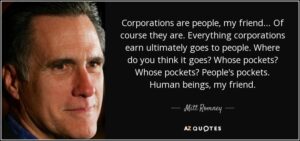Corporate responsibility has become one of the most pressing issues of our time. In an age when consumers demand transparency, accountability, and sustainability, many global corporations continue to fall short—sometimes spectacularly. From safety failures and labor abuses to accounting scandals and outright greenwashing, these examples remind us why vigilance, regulation, and consumer awareness matter more than ever.
This week, we examine some of the most striking recent cases of corporate misconduct across multiple industries.
Compromising Safety and Wellness
When corporations cut corners on safety, the costs are measured not just in dollars, but in human lives.
Boeing: The aerospace giant remains embroiled in scandal following two devastating crashes of its 737 MAX aircraft in 2018 and 2019. While the company entered a deferred prosecution agreement (DPA) in 2021, the Department of Justice later determined Boeing violated its terms. Then, in January 2024, a door plug blew out mid-flight on an Alaska Airlines 737 MAX, renewing concerns over quality control and corporate governance. Leadership shakeups and federal investigations followed, but confidence in Boeing’s safety culture has been severely shaken.
Costa Coffee: In 2023, tragedy struck when a 13-year-old girl with a severe milk allergy died after being served a hot chocolate containing cow’s milk, despite her mother informing staff of her allergy. Investigations revealed Costa’s allergen training was woefully inadequate, underscoring the risks when corporate systems prioritize speed and cost over careful compliance.
Hyundai Motor: In 2024, the U.S. Department of Labor sued a Hyundai parts supplier in Alabama after it was discovered that a 13-year-old girl worked up to 60 hours per week in its factory. The scandal exposed gaping holes in Hyundai’s supply chain vetting process and highlighted how forced labor and child labor remain ongoing global issues—even within the United States.
Financial Fraud and Accounting Misconduct
White-collar crime may not leave visible scars, but its impacts ripple through economies, markets, and communities.
TD Bank: In 2024, U.S. regulators levied nearly $3.1 billion in fines against TD Bank for failing to enforce adequate anti-money laundering controls. Investigators found the bank funneled more than $670 million linked to illegal drug trafficking. The case was one of the largest AML failures in U.S. banking history.
Evergrande: The Chinese property developer, already infamous for its financial implosion, was accused in 2024 of inflating revenues by $78 billion over two years. The scandal resulted in massive fines and ultimately forced liquidation.
Cloopen Group Holding: This China-based cloud communications firm came under SEC fire for prematurely recognizing revenue to inflate its financial results. The company’s manipulation highlights how aggressive accounting tactics remain a persistent corporate strategy.
Newell Brands: The parent of Sharpie and Paper Mate paid $12.5 million in SEC penalties in 2023 for inflating financial metrics to mask weak sales. While the fine was relatively small compared to other scandals, it reflects a broader culture of manipulating performance to appease investors.
Corporate Greed and Consumer Manipulation
When companies exploit crises or manipulate marketing to boost profits, the fallout is both economic and ethical.
Price Gouging: During and after the COVID-19 pandemic, major grocery chains and meatpacking companies, including Tyson, Smithfield, and Kroger, faced accusations of raising prices far beyond legitimate cost increases. Critics argue they weaponized inflation to pad profits while families struggled with skyrocketing grocery bills.
Greenwashing: Increasingly, corporations use environmental language to cover unsustainable practices. Fossil fuel companies tout “green energy initiatives” while expanding oil extraction. Automakers that once cheated emissions tests now market “eco-friendly” cars without delivering meaningful sustainability. Forbes warned in 2025 that superficial sustainability marketing is backfiring, eroding consumer trust.
Misleading Promotions: From “ethical sourcing” claims to packaging tweaks disguised as sustainability, companies continue to gamble with reputation by overselling their commitments to climate and social justice.
Worker Exploitation
Corporate cost-cutting often comes at the expense of workers.
Fake Headcount Reductions: Some corporations lay off employees while outsourcing the same work to contractors. The move reduces official headcount to impress shareholders but undermines morale and leads to operational mistakes.
Drip-By-Drip Layoffs: By staggering job cuts over time, companies avoid triggering labor laws that require social plans, retraining, or relocation compensation. It’s a quiet erosion of worker rights designed to cut costs while avoiding accountability.
The Greenwashing Epidemic
From fashion and food to finance and technology, misleading environmental claims have become a modern epidemic.
Fast Fashion
- H&M: Investigations found that over half of H&M’s “sustainability scorecards” were misleading. Its “Conscious Choice” line sparked lawsuits for exaggerating eco-friendliness. In 2024, the company signed an agreement with the UK’s Competition and Markets Authority to clean up its marketing.
- Zara: Its “Join Life” collection promotes “conscious materials,” but critics argue it’s a token effort within an otherwise unsustainable fast-fashion empire.
- Shein: In 2024, Shein was fined €1 million in Italy for misleading consumers with vague sustainability claims while fueling one of the world’s most wasteful clothing supply chains.
Beverages
- Coca-Cola, Nestlé, and Danone: These beverage giants were accused of falsely marketing bottles as “100% recycled.” In reality, none were fully recycled. Coca-Cola, the world’s top plastic polluter, now faces a U.S. lawsuit for misleading sustainability claims.
- Starbucks: Its much-touted “strawless lid” introduced in 2018 used more plastic by weight than the previous lid-and-straw combo. The company has also faced lawsuits over misleading “ethical sourcing” claims.
- Keurig: Fined millions in the U.S. and Canada for advertising coffee pods as recyclable when most recycling facilities could not process them.
- Innocent Drinks: Ads were banned in the UK in 2022 for overstating environmental impact while the Coca-Cola-owned brand continued unsustainable practices.
Consumer Goods and Tech
- Amazon: Accused of excessive packaging despite “Frustration-Free Packaging” programs. In 2025, Amazon faced lawsuits alleging its Basics paper products were not sustainably sourced.
- Apple: A German court in 2025 ruled Apple could not advertise its Apple Watch as “carbon neutral,” citing weak reliance on questionable carbon-offset programs.
- Walmart & Kohl’s: In 2022, both faced FTC action for falsely marketing rayon products as “bamboo.”
- Unilever (Persil): Ads banned in the UK in 2022 for unsubstantiated environmental claims.
- SC Johnson (Windex): Criticized for marketing bottles as made from “100% ocean plastic,” when in fact the plastic was merely “ocean-bound.”
Finance & Sports
- DWS (Deutsche Bank): Paid $25 million in 2023 to settle charges of misleading green investment claims.
- FIFA: Faced global backlash for falsely branding the 2022 World Cup as “carbon-neutral.”
- HSBC & Lloyds Banking Group: Both faced regulatory bans in the UK for advertising “green” initiatives while simultaneously financing fossil fuel projects.
Why Corporate Responsibility Matters
These scandals underscore an undeniable truth: when corporations fail, people and the planet pay the price. Consumers lose trust, workers lose livelihoods, and in the worst cases, people lose their lives.
But they also highlight the power of accountability. Regulatory crackdowns, lawsuits, investigative journalism, and consumer activism continue to push corporations toward greater transparency. As greenwashing cases rise and financial misconduct is exposed, the public is more skeptical—and more demanding—than ever.
Corporate responsibility is no longer optional. It is a defining factor for brand survival in a world where information spreads instantly and consumers wield collective power.
✅ Key Takeaway: Corporations must do more than talk about responsibility. They must embed safety, ethics, sustainability, and accountability into their DNA—or risk fines, lawsuits, and permanent reputational damage.



